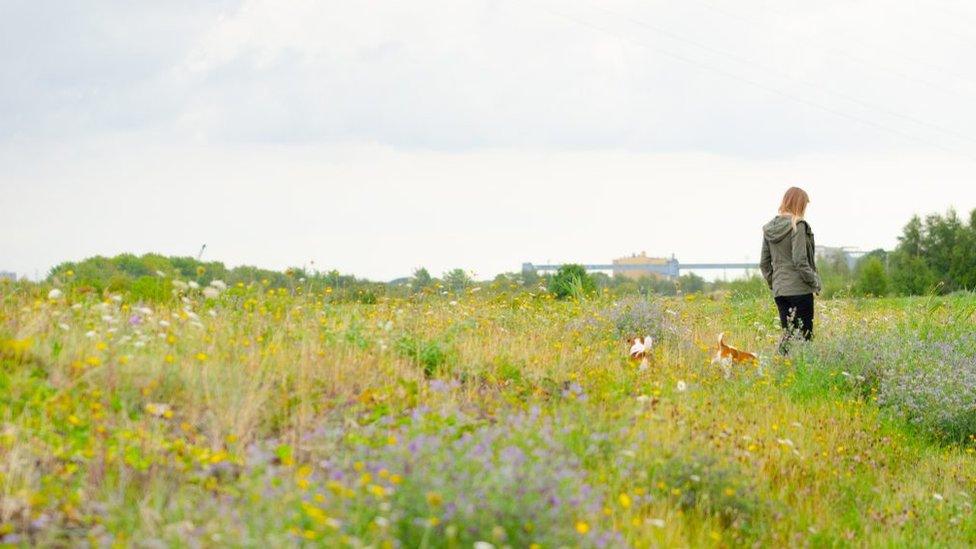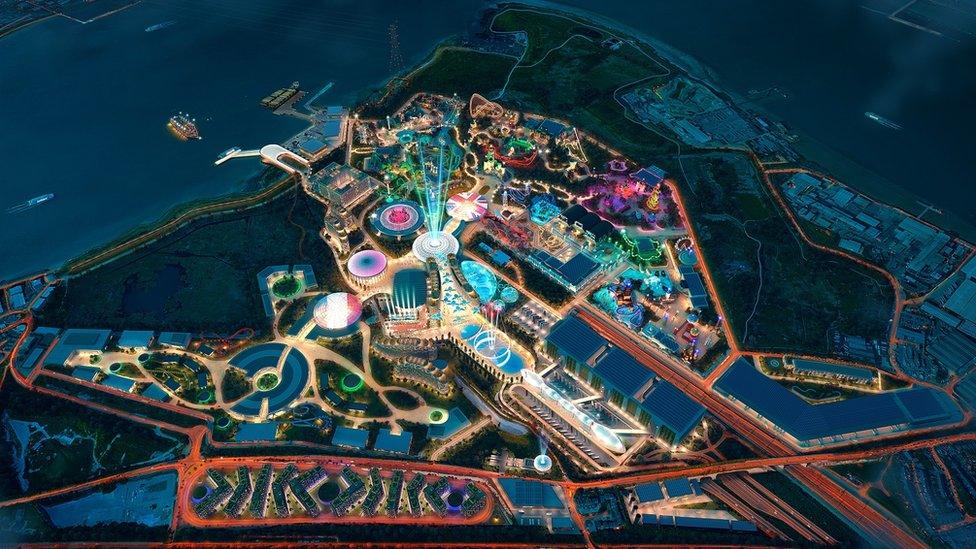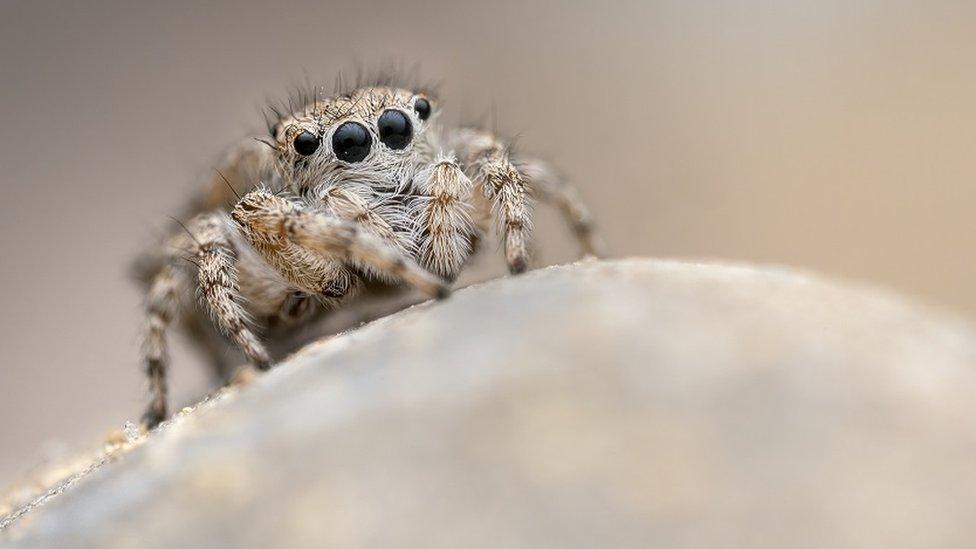London Resort: Swanscombe Peninsula gets protected status
- Published

Natural England said the area was a valuable refuge for people and wildlife
A site earmarked for a large theme park has been granted extra protection from developers.
Backers of the London Resort hope to build the huge attraction on the Swanscombe Peninsula in Kent.
Natural England recognised the area as a nationally important wildlife haven by designating it as a Site of Special Scientific Interest (SSSI).
London Resort chief executive Pierre-Yves Gerbeau said: "The project will of course continue."
The SSSI designation means the environmental value of the former industrial area next to the River Thames must be taken into account in any future planning decisions.
Natural England said the site has "enormous value as a green space and refuge for people as well as wildlife".

Developers would like to build two theme park sites on the peninsula
Conservation charities Buglife, RSPB and Kent Wildlife Trust, who oppose the theme park plans, said it was "a key step in the ongoing battle to protect the Swanscombe Peninsula and its unique wildlife from destruction".
A review by the Planning Inspectorate is due to begin later this year, but the government will have the final say as the proposals are deemed to be nationally significant infrastructure.

'Green refuge'
Natural England said the area is "a valuable green space in the shadow of the M25, abundant in wildlife and with huge benefits for people".
It is "one of the richest known sites in England for invertebrates," with over 1,700 invertebrate species, 200 of which are "considered of conservation importance", Natural England said.
It is also home to breeding birds, such as the marsh harrier and bearded tit, and plants that are threatened with extinction in the UK.

Mr Gerbeau said the new status was "just another issue to address in the long history" of the theme park proposals.
He said the company was working with Natural England to "identify the right ecological solutions to deliver this grand project," adding: "No one knows more about the land than us because we have been surveying and monitoring it since 2012".
Mr Gerbeau also said that London Resort bosses planned to "deliver a net gain in biodiversity" while transforming a "contaminated, former industrial site".

The site is home to 1,700 invertebrate species - including the critically endangered distinguished humping spider
Jamie Robins, of Buglife, said: "In no world is building on a nationally important wildlife site going to improve it for wildlife."
Mr Robins said the history of human intervention on the peninsula - which includes a former cement works and landfill - had created a "rich mosaic of habitats" that had been colonised by thousands of species of plants and animals.
"The whole site has been reclaimed by nature," he said. "It's this big, dynamic site for wildlife, you can't decide to build on part of it and expect the rest of it to be fine."
'Wildlife-rich spaces'
Emma Marsh, RSPB England's director, said: "Recognition as a SSSI should end any debate about developing a theme park here."
Natural England said recognising the "nationally-important wildlife features is an important step towards ensuring that its environmental value is recognised and taken due account of in any future planning decisions".
It said SSSI status would help ensure that people can "continue to benefit from these wildlife-rich green spaces long-term".

Follow BBC South East on Facebook, external, on Twitter, external, and on Instagram, external. Send your story ideas to southeasttoday@bbc.co.uk.
- Published8 February 2021

- Published1 March 2021
